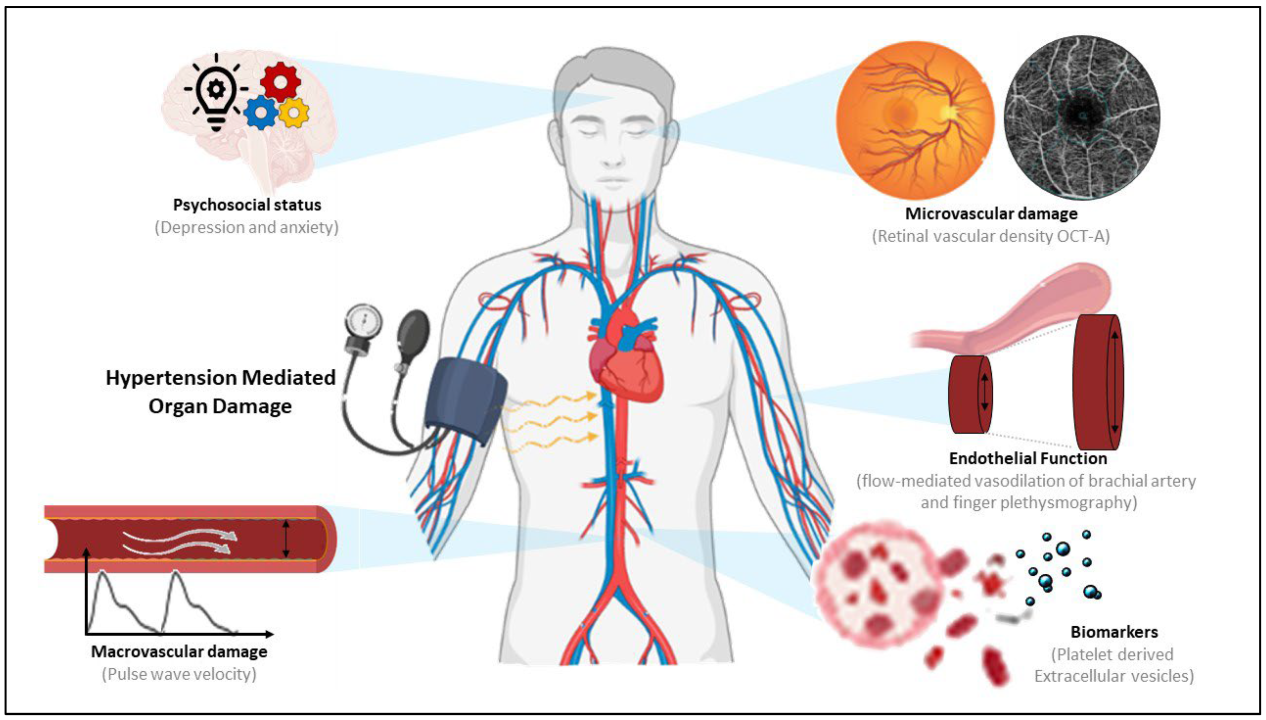Depression is a prevalent mental illness that is typified by a chronic sense of melancholy and disinterest. To manage it, seek professional help, practice self-care, and consider medication or therapy.
Understanding depression is critical, as it affects millions globally, disrupting lives and impeding daily functions. Depression, which is characterized by symptoms including extreme sorrow, exhaustion, changes in appetite, and sleep difficulties, can have a negative effect on a person’s quality of life. It’s crucial to acknowledge that depression is not merely a weakness or a phase; it is a medical condition requiring attention.
Addressing depression starts with a visit to a healthcare practitioner to discuss symptoms and explore treatment options. A combination of therapy, lifestyle adjustments, and possibly medication can improve mood and function. Individuals can also benefit from regular exercise, a balanced diet, adequate sleep, and support from friends and family. Remember, seeking help is a sign of strength, not weakness, as coping with depression is a step towards a healthier, happier life.

Credit: www.yahalife.com
The Landscape Of Mental Health: Depression’s Toll
The term “depression” often evokes the image of an emotional landscape shrouded in fog and void of color. Depression’s toll on mental health is undeniable. It affects everyday life, work, and relationships. Understanding this mental health condition is essential.
Identifying The Faces Of Depression
Depression wears many masks. Some individuals may seem downcast or tearful, while others might appear irritable or indifferent. Symptoms vary widely but include:
- Feelings of sadness or hopelessness
- Lack of interest in activities once enjoyed
- Changes in appetite
- Trouble sleeping or sleeping too much
- Loss of energy
Recognizing these signs can lead to early support and treatment.
Health And Society Under Depression’s Shadow
| Impact on Health | Impact on Society |
|---|---|
| Chronic illness risk increases Such as heart disease and diabetes |
Productivity dwindles Jobs may suffer or be lost |
| Physical pain often coexists Headaches or muscle aches |
Economic strain felt From healthcare costs to lost wages |
| Mental agility suffers Concentration and decision-making falter |
Relationships at home and work fray Tension and conflict rise |
In the shadow of depression, both physical health and social frameworks are compromised. The ripple effects touch every corner of society.

Credit: littletoes.com
Beyond Sadness: Symptoms Of Depression
Depression involves much more than feeling blue. Recognizing its symptoms is the first step toward healing. Let’s explore these signs more deeply.
Physical And Emotional Signs
Depression affects both mind and body, showing physical and emotional clues. These signs may include:
- Constant fatigue, even after sleep
- Sleep disturbances, like insomnia or oversleeping
- Aches and pains with no clear cause
- Weight changes due to eating more or less
- Feeling sad or empty most of the day
- Loss of interest in favorite activities
- Feelings of guilt or worthlessness that linger
Behavioral And Cognitive Changes
Depression can alter behavior and thinking. Watch out for these shifts:
| Behavioral Changes | Cognitive Changes |
|---|---|
| Withdrawing from social connections | Difficulty concentrating or making decisions |
| Loss of energy for daily tasks | Memory problems, forgetting details |
| Using substances like alcohol, recklessly | Negative thoughts, such as hopelessness |
| Irregular work or school performance | Trouble thinking or concentrating |
Detecting Depression: Diagnosis Criteria
Detecting Depression: Diagnosis Criteria are crucial for proper treatment. A health professional may begin with a series of evaluations to understand the nature of your symptoms. Through medical and psychological assessments, they determine if you’re experiencing depression. Knowing the intensity of your condition directs them towards the right intervention.
Medical Evaluations
Depression is more than just feeling sad. It could be tied to physical causes. Hence, doctors first rule out medical conditions. They perform blood tests to check hormones and vitamin levels. A physical exam may follow. These steps ensure accurate diagnosis and effective treatment plans.
Psychological Assessments
After medical tests, mental health experts take over. They discuss your thoughts, feelings, and behaviors. It involves questionnaires and interviews. DSM-5, a tool psychiatrists use, lists criteria for depression. If you meet these, you might be diagnosed with depression. These assessments are vital for uncovering your mental state.
Understanding Severity: Mild, Moderate, And Severe
Determining how serious your depression is helps in crafting a treatment plan. Mental health professionals categorize depression into three levels:
- Mild Depression – Few symptoms; manageable but annoying.
- Moderate Depression – Symptoms are tougher, affecting daily tasks.
- Severe Depression – Symptoms are intense and life-impairing.
This categorization aids in selecting medications, therapies, or a combination as treatment.
Roots Of The Blues: Causes Behind Depression
Understanding depression calls for a peek at its complex roots. Like a tree with many branches, depression stems from varied factors. They range from our genetic makeup to daily experiences. Exploring these sources is key to grasping why someone might face depression.
Genetic Vulnerabilities And Biochemistry
Our genes play a pivotal role in mental health.
- Depression often runs in families, indicating a genetical link.
- Specific gene variations may increase the risk.
- These genes impact brain chemicals that regulate mood.
Advances in science reveal the intricate dance between genes and emotions. Not everyone with these genes will feel depressed. Yet, they are more sensitive to emotional upheaval.
Life Events And Environmental Triggers
What happens in life can also lead to depression. These are not just bad days but serious events that shake a person’s world.
- The death of a close relative can act as a potent catalyst.
- Stressful work or financial turmoil adds to the risk.
- Even positive changes like a new job might trigger depression.
It’s not just what happens but also how we cope with it. Resilience varies. Those with less support or coping skills may find life’s trials harder to overcome.
Navigating Treatment Options
Exploring ways to tackle depression can be challenging. Every person’s journey is unique, and there are several paths one can take. Being familiar with the options is crucial. This knowledge aids in making informed decisions. Let’s dive into some of the effective treatment possibilities.
Medication: Antidepressants And Beyond
Antidepressants are often prescribed for depression. They aim to balance brain chemicals. These chemicals influence mood and emotions. Medicines work differently for everyone. Doctors may try different ones to find the best fit. It’s important to discuss all effects with a healthcare provider. Here’s a quick overview of common antidepressant types:
- SSRIs: These are selective serotonin reuptake inhibitors.
- SNRIs: Serotonin and norepinephrine reuptake inhibitors are another kind.
- MAOIs: Monoamine oxidase inhibitors are for atypical depression.
- TCAs: Tricyclic antidepressants are an older type.
Apart from antidepressants, other treatments help too.Prior to taking any new drug, always get medical advice. Treatment may include:
- Mood stabilizers: For bipolar-related depression.
- Anti-anxiety meds: For depression with anxiety.
- Antipsychotics: Sometimes used alongside other medications.
Psychotherapy: Different Approaches To Healing
Psychotherapy, also known as talk therapy, involves talking with a professional. It helps understand thoughts, emotions, and behaviors. There are many types of therapy customized to individual needs. Some effective therapies include:
| Type of Therapy | Brief Description |
|---|---|
| Cognitive Behavioral Therapy (CBT) | Focuses on altering negative thoughts and behaviors. |
| Interpersonal Therapy (IPT) | Targets difficulties in personal relationships. |
| Dialectical Behavior Therapy (DBT) | A form of CBT aimed at developing coping strategies. |
| Psychodynamic Therapy | Explores past experiences impacting current behavior. |
Finding the right therapist is important. The relationship between therapist and client is the foundation of effective therapy. Patience and perseverance are crucial. It often takes time to notice improvements. Start small, and remain honest with your therapist for the best results.

Credit: m.youtube.com
Lifestyle Adjustments For Managing Symptoms
Depression is a complex mental health issue that affects millions of people around the world. While professional treatment is paramount, lifestyle adjustments can be essential in managing symptoms. Simple changes to daily routines can profoundly impact mood, energy levels, and overall well-being. Let’s explore how diet, exercise, and mindfulness contribute to these positive shifts.
Diet
Nutrition is a cornerstone of mental health. A balanced diet fuels the body and mind, potentially easing the symptoms of depression. Focus on:
- Whole foods: Fruits, vegetables, and whole grains are vital.
- Lean protein: It supports brain function and mood regulation.
- Omega-3 fatty acids are found in fish and flaxseeds and are crucial for brain health.
Exercise
Physical activity is a natural antidepressant. It boosts endorphins, known as “feel-good” hormones. Aim for:
- Consistency: Daily activity, even just a walk, can make a difference.
- Variety: Mix cardio, strength, and flexibility exercises.
- Enjoyment: Choose activities that you find fun and uplifting.
Sleep Hygiene
Quality sleep is important for mood stability. Improve sleep by:
- Regular schedule: Go to bed and wake up at the same times daily.
- Comfortable environment: Ensure your bedroom is quiet and dark.
- Screen-time limit: Avoid screens at least an hour before bed.
Meditation, Mindfulness, And Stress Reduction
Mindfulness practices like meditation can significantly lower stress levels. They help ground thoughts and emotions. Techniques include:
- Guided meditation: Use apps or online videos to get started.
- Deep breathing exercises: They help calm the mind and body.
- Body scan meditation: Focus on each body part to release tension.
Support Systems And Their Role
Support Systems and Their Role often play a vital part in managing depression. Support from family, friends, or community members can influence one’s journey to recovery. Let’s explore the importance of these relationships and how to make the most of support networks.
Importance Of Social Connections
Humans are social creatures. Strong social connections can improve your mood. They may also lessen your sense of isolation. Surrounding yourself with an understanding of people matters for mental health.
- Friends can provide comfort.
- Family offers a safety net.
- Communities give a sense of belonging.
Leveraging Support Groups And Online Communities
Support groups bring people who face similar challenges together. Here, you find empathy and shared experiences. Online communities are accessible, too. They offer 24/7 availability. Here’s how to leverage these resources:
- Search for groups relevant to your needs.
- Engage in discussions and share your story.
- Seek advice and provide support to others.
Remember, reaching out is brave. It’s a critical step forward in managing depression, and a strong support system can lead to a brighter, healthier future.
Self-help Strategies And Empowerment
Depression is a complex condition affecting millions worldwide. It can feel like an uphill battle. Despair and helplessness often overshadow one’s outlook on life. But there’s hope. With the right strategies, embracing self-help can be transformative. And that’s exactly what this part of the post will delve into.
Building Resilience Through Self-care
Self-care is rooted in a simple idea: nurturing yourself. It is the bedrock for resilience against life’s storms. Establishing a self-care routine can be a lifeline. Here are small, attainable steps to consider:
- Sleep: Target at least 7-8 hours nightly.
- Nutrition: Fuel your body with wholesome foods.
- Exercise: Incorporate daily physical activity.
- Mindfulness: Practice meditation or deep breathing exercises.
- Connections: Reach out to loved ones regularly.
Setting Realistic Goals And Celebrating Progress
Goals energize and give purpose. Yet, they must be achievable. Start small and build up. Here’s how:
- Define: Clearly state your goals for yourself.
- Break it down: Break down objectives into more achievable tasks.
- Timeline: Set a reasonable timeframe for each task.
- Monitor: Keep track of every small victory.
- Reward: Celebrate your progress, no matter how modest.
Remember, everyone’s journey through depression is unique. Your pace matters, not speed. Consistency brings its own set of triumphs.
When To Seek Emergency Help
Depression can cast a shadow over every facet of life, leaving you feeling hopeless and alone. This mental health challenge may sometimes create urgent situations requiring immediate action. Understanding when to seek emergency help is crucial in safeguarding yourself or a loved one in crisis.
Recognizing Suicidal Signs And Ideation
Knowing the warning signs of suicidal thoughts is vital:
- Expressing a desire to die or harm oneself
- Feeling trapped or in unbearable pain
- Showcasing extreme mood swings
- Withdrawing or saying goodbye to loved ones
- Displaying severe anxiety or agitation
Keep an eye out for abrupt behavioral shifts, such as giving up valuables or obtaining tools for self-harm. These actions demand immediate attention.
Immediate Steps And Hotline Resources
If you recognize any of these distressing signs, take the following steps without delay:
- Stay close to the person in crisis.
- Take away anything dangerous that kids could use to injure themselves.
- Listen to them without judgment.
- Do not leave them alone.
Contact immediate support through the following hotlines:
| Hotline | Contact Number |
|---|---|
| National Suicide Prevention Lifeline (USA) | 1-800-273-TALK (8255) |
| Crisis Text Line (USA) | Text HOME to 741741 |
| Befrienders Worldwide | Visit www.befrienders.org to find a helpline by country |
Quickly accessing help can make a difference and potentially save a life. Remember, seeking help is a sign of strength, not weakness.
The Journey Ahead: Long-term Coping And Recovery
Depression is a path often walked with patience. It’s important to remember that recovery is a journey, not a destination. The right coping strategies and a strong support system are vital. They help to navigate the ups and downs of this complex condition.
Monitoring And Adjusting Treatment Plans
Tracking progress is crucial in managing depression. Working closely with healthcare providers, individuals can ensure their treatment plan is effective. Regular appointments allow for the adjustment of medications and therapies as needed. This ensures the plan remains aligned with recovery goals.
- Regular check-ins with a mental health professional
- Assessment of current medication effectiveness
- Adjustments to therapy techniques or goals
- A personal reflection on mood and behavior changes
Embracing Hope And Moving Forward
Fostering a sense of hope is essential. It can fuel motivation on harder days. Small victories and positive affirmations build resilience and confidence in one’s coping ability. Social support, engaging in hobbies, and setting achievable goals are all part of moving forward.
| Activity | Benefit |
|---|---|
| Social Interaction | Increases feelings of belonging |
| Physical Exercise | Boosts mood through endorphin release |
| Mindfulness Practices | Reduces stress and enhances present-moment awareness |
Remember, this journey may have twists and turns. Each step forward, no matter how small, is progress toward recovery.
Frequently Asked Questions: What Is Depression And What Can I Do About It?
What Causes Depression?
Depression stems from various factors like genetics, chemical imbalances in the brain, stressful life changes, and medication side effects. It’s a multifaceted issue that requires understanding the individual’s experience.
Can Depression Be Treated?
Absolutely , depression is treatable with therapies like cognitive behavioral therapy, medication such as antidepressants, lifestyle changes, and community support, which contribute to recovery.
Is Depression Common?
Yes, depression is quite common. Anyone can be impacted by it at any time in their lives. Studies show millions are diagnosed every year, indicating its widespread nature.
How Long Does Depression Last?
The duration of depression varies greatly among individuals. It can be short-term or chronic, depending on various factors, such as treatment effectiveness and personal resilience.
Conclusion
Although it’s a complicated illness, depression is treatable. Seeking help is a brave and vital step. Small actions like regular exercise and a balanced diet can aid in managing symptoms. Always remember, you’re not alone; support networks are available to help you navigate through the fog of depression toward a brighter, healthier tomorrow.

Hello there! I’m here to assist you with health tips and tricks. Whether you’re looking to boost your energy, improve your sleep, or enhance your overall well-being, I’m here to guide you with strategies and frameworks that can empower you to make positive changes.
First and foremost, it’s important to understand that health is a holistic concept encompassing various aspects of physical, mental, and emotional well-being.

